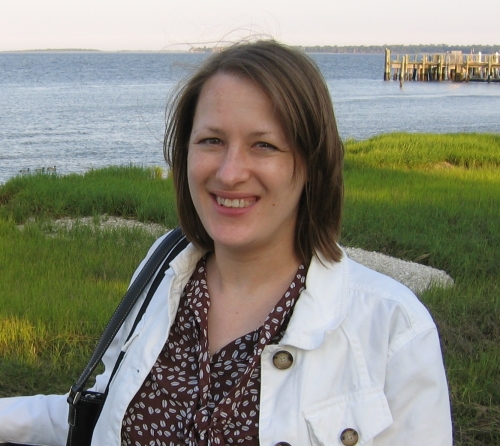Elisabeth Schussler

ADDRESS
Website
Phone
Phone lab
Elisabeth Schussler
Professor
Research Interest
OPEN TO STUDENT INQUIRY Instructional practices, introductory biology, GTAs, professional development
Education
1997 – Ph.D., Louisiana State University
Research
The development of effective undergraduate educational practices is reliant on empirical data about teaching and student learning; research in my lab employs qualitative and quantitative research methods to collect these data.
One of the foci of my lab is the shaping of undergraduate learning environments to foster meaningful student learning. Although learning environments are organized around specific curricula, student learning is often a function of the instructor and/or student perception of the instructor. Much of my lab’s research has focused on this interplay between the instructor and students and how it affects student learning. Recently, this work has explored the impacts of emotional reactions to instructional practices, with a central focus on student anxiety in introductory biology classes, and recent work on how perceptions of failure impact self-efficacy. Many of my graduate students have studied the experiences of graduate students in their graduate programs, with research on topics ranging from anxiety towards teaching and research to how students define and achieve success to chance event impacts on careers.
I continue a long-standing commitment to graduate student teaching professional development through my participation in the Biology Teaching Assistant (BioTAP), an NSF-funded research coordination network I and collaborators founded in 2013. This network has co-published a national survey on the state of GTA TPD at institutions across the US and Canada, proposed a conceptual model for conducting research on GTA TPD programs, and outlined the philosophy and practices of the BioTAP Scholars program. These publications are listed below.
Publications
Visit Google Scholar for more publications:
- Ferguson, H, EE Schussler. In press. Examining the unexpected: The occurrence and impact of chance events on life science graduate students’ career intentions. Journal of STEM Education Research.
- Weatherton, M, BM Von der Mehden, B, EE Schussler. 2023. “I don’t know what I would do without it” How life science graduate students describe resource value. CBE Life Sciences Education 22(4): ar 34.
- Weatherton, M, EE Schussler. 2022. Demographics matter: Nonwhite and white life science graduate students perceive and use resources differently. CBE Life Sciences Education 21(4): ar 79.
- Miller, KR, JS Ridgway, G Marbach-Ad, EE Schussler, GE Gardner. 2022. The BioTAP Professional Development Model: Expanding Empirical Research on Graduate Student Teaching Professional Development. CourseSource https://doi.org/10.24918/cs.2021.44
- Musgrove, MMC, EE Schussler. 2021. To Cope or Not To Cope: How Biology graduate teaching assistants (GTAs) cope with teaching and research anxieties. CBE Life Sciences Education 20(4): ar 56.
- Schussler, EE, M Weatherton, M Chen Musgrove, J Brigati, B England. 2021. Student perceptions of instructor supportiveness: What characteristics make a difference? CBE Life Sciences Education 20(2): ar 29.
- Weatherton, M and EE Schussler. 2021. Success for all? A call to reexamine how student success is defined in higher education. CBE Life Sciences Education 20(1): es 3.
- Schussler EE, JR Brigati, BJ England. 2020. How do undergraduates cope with anxiety resulting from active learning practices in introductory biology? PLoS ONE 15(8): e0236558.
- England, BJ, JR Brigati, EE Schussler, MM Chen*. 2019. Student Anxiety and Perception of Difficulty Impact Performance and Persistence in Introductory Biology Courses. CBE Life Sciences Education 18(2): ar 21.
- England, BJ, JR Brigati, EE Schussler. 2017. Student anxiety in introductory biology classrooms: Perceptions about active learning and persistence in the major. PlosONE 12(8): e0182506.
- Reeves, TD, G Marbach-Ad, KR Miller, J Ridgway, GE Gardner, EE Schussler, and EW Wischusen. 2016. A Conceptual Framework for Graduate Teaching Assistant Professional Development Evaluation and Research. CBE Life Sciences Education 15: 1-9.
- Schussler, EE, Q Read, G Marbach-Ad, K Miller, and M Ferzli. 2015. Preparing Biology Graduate Teaching Assistants for their Roles as Instructors: An Assessment of Institutional Approaches. CBE Life Sciences Education 14: 1-11.